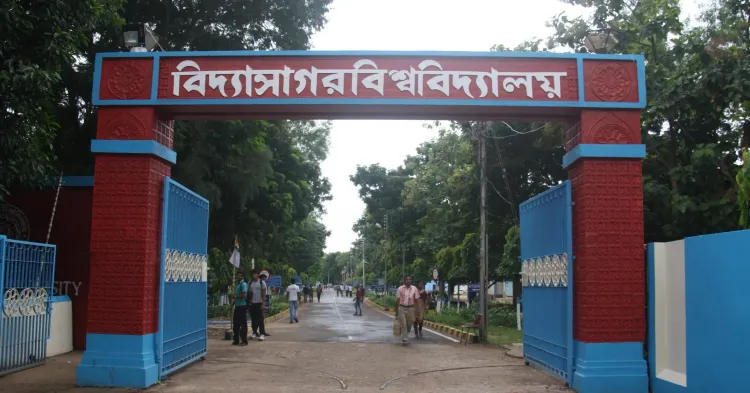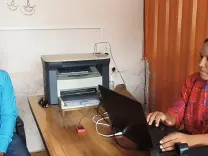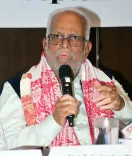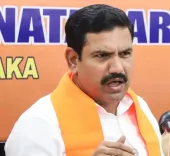Is there a Slugfest over Bengal University Exam Paper Calling Freedom Fighters 'Terrorists'?

Synopsis
Key Takeaways
- Vidyasagar University has faced backlash for a controversial exam question.
- The historical significance of Midnapore is critical to understanding the context.
- Concerns have been raised about the education system's integrity in West Bengal.
- The incident underscores the importance of accurate historical representation.
- Political responses reflect broader ideological divisions in the region.
Kolkata, July 10 (NationPress) A significant political and social disturbance has emerged in West Bengal following a history examination paper from a well-regarded state university that indirectly labeled Indian freedom fighters as “terrorists.”
The disputed question was featured in an exam paper from Vidyasagar University, located in Midnapore. The inquiry stated -- “Identify three district magistrates of Midnapore who were killed by terrorists.”
This reference has ignited widespread indignation, particularly due to the historical importance of undivided Midnapore, a prominent center for the armed revolutionary movement against British colonial domination during the pre-independence period.
Compounding the controversy is the fact that the university bears the name of Ishwar Chandra Vidyasagar, an iconic 19th-century educationist, social reformer, and philanthropist whose groundbreaking initiatives led to the acceptance of widow remarriage in India.
Members of civil society have raised concerns regarding the qualifications and ideological stance of the academic responsible for the question. Many perceive this as a striking indication of the declining quality of education in West Bengal.
Local BJP representatives have addressed letters to Chief Minister Mamata Banerjee and Education Minister Bratya Basu, urging that the individual accountable for drafting the paper be identified and held responsible.
While both the CM and the Education Minister have not publicly responded, the Registrar of Vidyasagar University, J.K. Nandi, acknowledged the mistake and termed it a “typing error.” He stated that an emergency meeting has been convened to investigate how this question was included in the final paper.
“We will ensure such errors do not occur again,” Nandi promised.
The CPI(M) has accused both the BJP at the national level and the Trinamool Congress at the state level of distorting history, asserting that this incident is merely the latest example.
Interestingly, even the district unit of the Trinamool Congress recognized the gravity of the situation, declaring that equating freedom fighters with terrorists was an “unpardonable mistake.”






